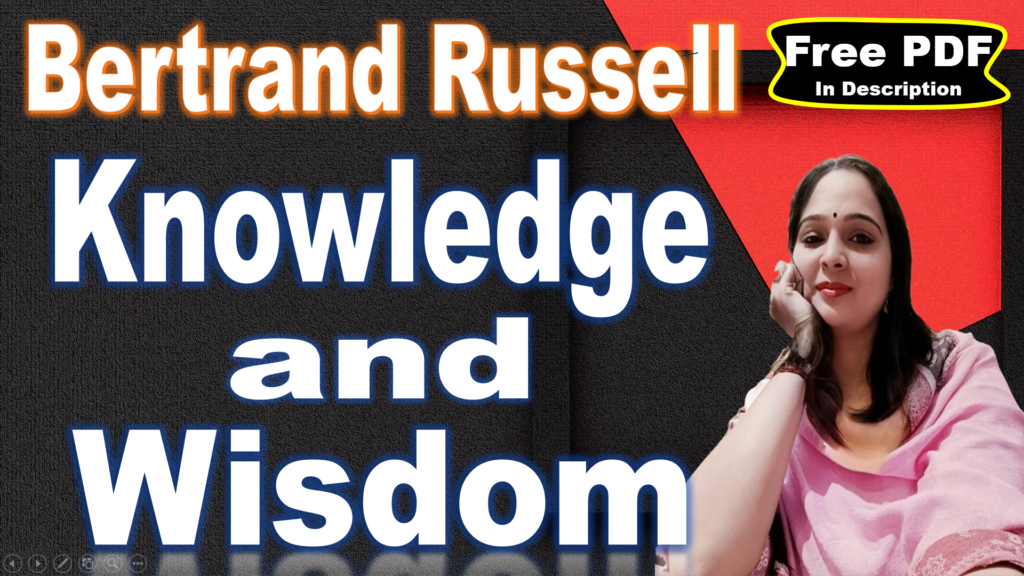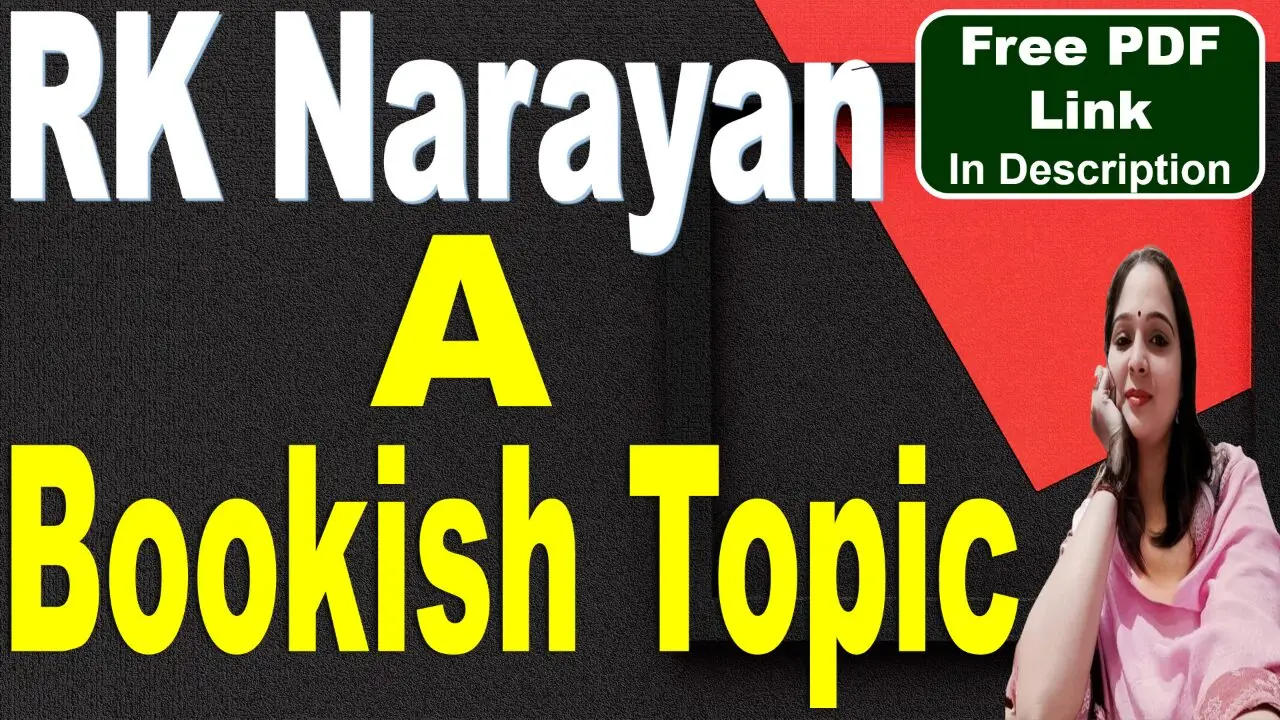
Knowledge and Wisdom by Bertrand Russell Summary
Bertrand Russell’s reflections on knowledge and wisdom are insightful and raise important considerations about the relationship between the two. Here are some key points from the text:
Knowledge vs. Wisdom: Russell begins by pointing out the apparent disconnect between the vast increase in knowledge in his time and the lack of a corresponding increase in wisdom. While knowledge involves the acquisition of information, wisdom is characterized by a sense of proportion, awareness of human ends, and the ability to make judicious choices.
Comprehensive Vision: Russell emphasizes the importance of comprehensiveness in wisdom, the capacity to consider all relevant factors in a problem and assign them their due weight. Specialized knowledge, while valuable, can lead to unintended consequences if not combined with a broader understanding of its implications.
Awareness of Ends: Wisdom involves an awareness of the ultimate goals of human life. Russell uses the example of historians who, driven by personal passions, may distort facts. Understanding the broader context and purpose of one’s actions is crucial in the pursuit of wisdom.
Emotional Intelligence: Russell suggests that wisdom includes emotional intelligence. Men with wide knowledge but narrow feelings lack wisdom. The ability to empathize, understand others, and manage one’s emotions is essential for a wise perspective.
Emancipation from the Present: Russell sees the essence of wisdom as emancipation from the tyranny of the present moment. As individuals move beyond personal concerns and develop a broader perspective, they approach impartiality and grow in wisdom.
Teaching Wisdom: Russell argues that wisdom, to some extent, can be taught. He suggests that education should aim to instill wisdom by combining intellectual elements with moral instruction. The understanding of the consequences of hatred and narrow-mindedness should be integrated into knowledge dissemination.
Hatred and Understanding: Russell challenges the idea that hatred of evil is productive. Instead, he advocates for understanding as a way to combat evil effectively. Resistance, in his view, should be coupled with a deep understanding and minimal force necessary to preserve the good.
Compatibility of Wisdom and Vigor in Action: Contrary to the belief that wisdom may hinder vigorous action, Russell cites historical figures like Queen Elizabeth I, Henry IV, and Abraham Lincoln as examples of leaders who combined wisdom with effective action.
Global Citizenship: Russell concludes by emphasizing the need for citizens, even skilled technicians, to be good citizens of the world. Wisdom becomes increasingly crucial with the growth of knowledge, as the capacity for both good and evil expands.
Key Points
Author Bertrand Russell was a British philosopher, logician, essayist, and social critic. He is best known for his work in mathematical logic and analytic philosophy. His contributions to logic, epistemology, and the philosophy of mathematics established him as one of the foremost philosophers of the 20th century. In 1950, Russell was awarded the Nobel Prize in Literature “in recognition of his varied and significant writings in which he champions humanitarian ideals and freedom of thought.”
Introduction In the essay “Knowledge and Wisdom,” Russell explores the relationship between knowledge and wisdom. He begins by defining knowledge as the awareness and understanding of facts, information, descriptions, or skills acquired through experience or education. On the other hand, he defines wisdom as the ability to think and act using knowledge, experience, understanding, common sense, and insight. Russell emphasizes that while knowledge is necessary, it is not sufficient. Wisdom is needed to use knowledge in a way that promotes well-being and ethical values.
Structure The essay is structured as a series of reflections and observations. Russell uses a variety of examples from history and contemporary society to illustrate his points. The essay is not divided into sections or chapters, but it follows a logical progression from the introduction of the topic to the exploration of the relationship between knowledge and wisdom, and finally to the conclusion where Russell emphasizes the importance of wisdom.
Setting The setting of the essay is not a physical location but the intellectual and philosophical landscape in which Russell was writing. He discusses the role of knowledge and wisdom in society and the dangers of knowledge without wisdom. The essay reflects the intellectual climate of the early 20th century, but its themes and insights remain relevant today.
Theme The main theme of the essay is the distinction between knowledge and wisdom. Russell argues that knowledge is about facts and information, while wisdom is about understanding and applying this knowledge in a meaningful and ethical way. He emphasizes that wisdom is more important than knowledge because it leads to a better understanding of the world and a more fulfilling life.
Style Russell’s style in this essay is clear, concise, and thought-provoking. He uses logical arguments and real-world examples to make his points. His writing is accessible to a general audience, but also offers deep insights for those familiar with philosophical concepts. Russell’s style is characterized by clarity, precision, and a commitment to logical reasoning.
Message The key message of the essay is the importance of wisdom in using knowledge. Russell warns of the dangers of knowledge without wisdom, giving examples of how knowledge can be misused when not tempered with wisdom. He advocates for the integration of wisdom into education, arguing that knowledge alone can lead to its misuse. He also discusses several factors that contribute to wisdom, including a sense of proportion, comprehensiveness with broad feeling, emancipation from personal prejudices, and the tyranny of sensory perception. The essay is a call to action for individuals and societies to value and cultivate wisdom.
Bertrand Russell
Full Name: Bertrand Arthur William Russell.
Title: 3rd Earl Russell.
Birth: He was born on 18 May 1872 in Trellech, Wales, United Kingdom.
Death: He died on 2 February 1970 in Penrhyndeudraeth, Wales, UK.
Profession: He was a British philosopher, logician, and mathematician.
Work: He worked mostly in the 20th century.
Nobel Prize: He won the Nobel Prize in Literature in 1950.
Contributions: He wrote many books and articles and tried to make philosophy popular1. He gave his opinion on many topics.
Famous Essay: He wrote the essay, “On Denoting”, which has been described as one of the most influential essays in philosophy in the 20th Century.
Political Views: He was a well-known liberal as well as a socialist and anti-war activist for most of his long life.
Beliefs: In his 1949 speech, “Am I an Atheist or an Agnostic?”, Russell expressed his difficulty over whether to call himself an atheist or an agnostic.
Word Meaning
| Tough Word | Meaning in English | Meaning in Hindi |
| surpasses | exceeds, goes beyond | पार हो जाता है |
| correlative | corresponding, related | संबंधित |
| wisdom | Intelligence | बुद्धिमत्ता |
| ceases | stops, comes to an end | समाप्त हो जाता है |
| sense of proportion | ability to judge things fairly and objectively | अनुपात की भावना |
| capacity | ability, power | क्षमता |
| take account of | consider, pay attention to | ध्यान में रखना |
| due weight | appropriate importance | उचित वजन |
| absorb | take up all of | सोख लेना |
| intellectual | relating to the mind and intellect | बौद्धिक |
| enormously | Extremely / grossly | अत्यंत |
| unintended | not planned or intended | अनपेक्षित |
| spectacular | impressive, dramatic | शानदार |
| lunatics | insane people | पागल |
| pursuit | Target / chase | लक्ष्य |
| Comprehensiveness | vast | व्यापकता |
| ends | goals, objectives | अंत |
| unculcate | uneducated | अशिक्षित |
| emancipation | liberation, freedom from control | मुक्ति |
| personal prejudice | biased opinion based on personal feelings | व्यक्तिगत पूर्वाग्रह |
| noble | good, admirable | महान |
| inherently | essentially, by its nature | स्वाभाविक रूप से |
| devoted | dedicated, committed | समर्पित |
| philosopher’s stone | paaras patthar | पारस पत्थर |
| elixir of life | elixir of life | अमृत |
| descend | move down to a lower level | नीचे उतरना |
| heroic | brave, courageous | वीरतापूर्ण |
| Mr. A and Mr. B | fictional characters used as examples | श्री ए और श्री बी |
| mutual hatred | Hating each other | आपसी नफरत |
| appalling | shocking, terrible | भयानक |
| partly true | partially accurate | आंशिक रूप से सच |
| partly false | partially inaccurate | आंशिक रूप से गलत |
| persuasiveness | ability to convince someone | मनाने की क्षमता |
| wickedness | badness | दुष्टता |
| enmity | Ill will | शत्रुता |
| instilled | introduced, put in | स्थापित किया |
| tyranny | oppression | अत्याचार |
| affirmative | positive | सकारात्मक |
| exhorted | To address | आह्वान |
| precept | rule | नियम |
| exemplified | To give an example | एक उदाहरण प्रस्तुत किया |
| Samaritan | a member of a people inhabiting Samaria in biblical times | समैरिया का निवासी |
| apt | suitable | उपयुक्त |
| parable | instance | दृष्टांत |
| Communist | a person who believes in or supports communism; a member of the Communist Party | साम्यवादी |
| abandon | Give up | छोड़ देना |
| urged | pray | दृढ़तापूर्वक निवेदन करना |
| vigour | power | ताक़त |
| fanatical | a person who is extremely enthusiastic about and devoted to some interest or activity | कट्टर |
| Protestant | opposer | प्रतिवाद करनेवाला |
| Catholic | कैथोलिक / रोमन कैथोलिक ईसाई | |
| departing | Go away | प्रस्थान |
| customary | stereotyped | प्रथागत |
| disastrous | critical | विनाशकारी |
| sect | community | संप्रदाय |
| augments | increase | बढ़ाना |





